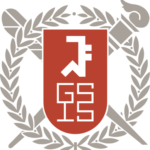코로나19 팬데믹 시대의 사각지대
코로나19 팬데믹 시대의 사각지대
2020. 10. | JUNGWON KIM
The Blind Spot of the COVID-19
As the COVID-19 pandemic continues, important discoveries emerged regarding the social blind spots that were prevalent in modern South Korean society. The Moon government attempted to repair the damages by introducing various measures such as the emergency disaster support(긴급재난지원금), the family care leave(가족돌봄휴가) and etc. Despite an yearlong effort, problems stemming from COVID-19 are yet to be resolved. In particular, high-risk populations such as the elders, children and people with severe disabilities remain stuck in the damage caused by the pandemic. In this blog, we focus on two problems that remain in COVID-19 blindspots. First, vulnerable children that are at risk of severe harm due to malnutrition and domestic violence. Second, a possible gender inequality issue at home during telecommuting as mothers simultaneously work and parent way more. Childcare is often burdened on women in the name of ‘maternal love’ but we must realize children are made between two adults who share equal responsibility for the child’s well-being and that includes daily care for the child.
Blind Spot of childcare in the midst of pandemic
According to the “2020 Children’s Disaster Response Survey”[1] conducted by Good Neighbors in October 2020, 68.1% of the respondents said the number of days children spent without the presence of a legal guardian has increased since the virus swept the world. One of the biggest problems surfaced is an increase in the number of undernourished children. According to the South Korean Ministry of Health and Welfare, the total number of underfed children confirmed by August 2020 was 299,506 already surpassing 90 percent of the number counted in 2019 which was 331,014. It has also been noted that the prolonged pandemic made the quality of meals poor because children lack access to school and local food services. Due to the continuous self-quarantine measures caused by the virus, the child protection agencies are also having difficulties tracking down child abuse cases. According to a Chosun Ilbo[2] article, Shin Jae-hak, the head of the case management team at the Gyeonggi-do Children’s Protection Agency, said there are increasing cases of one-time-abuse due to stress from the guardians. The number of children neglected by their parents, as well as society is dangerously rising, and fundamental changes are required in order to protect the children.
Blind spot of women’s care labor
As of October 2020, 62.8% of the applicants for “emergency support for family care leave” were women (about 83,000 people) and 37.7% (about 50,000 people) were men, according to the South Korean Ministry of Employment and Labor.[3]
During the six-month research internship at the Center for Transnational Migration and Social Inclusion, I studied the South Korean government’s economic policies to deal with the damage caused by the virus. One of the most memorable cases was how the sentiments of “mothers” have changed over time. Personally, I found the study emotionally challenging as it progressed. The pain a mother go through as a woman was more severe than I had ever imagined. The pandemic brought classes online and children got to stay at home all day. The government supported various policies such as emergency care to relieve this sudden life change. Nevertheless, too many women had to give up their jobs and become a stay-at-home-mom. It is also a huge burden for stay-at-home mothers since they would have to spend 24/7 with their children which is beyond their control. Society takes women for granted for having maternal love, and perhaps all these hardships are so easy to be neglected. Indeed, as mothers, they are responsible for raising their own children. However, we cannot overlook the possibility of gender inequality at home that care labor is still biased toward women and that it’s not as equally divided as it should between a couple.
In addition to blind spots that I have mentioned above, there are other problems that need to be addressed by society. Strikes are taking place among elementary care workers to improve their rights. Vulnerable groups such as the disabled, the elderly living alone, and the homeless are being hit harder by the Covid because they lack the manpower to take charge of active self-care. We still have so many people in the care-blind-spot. Those were pre-existing problems that had not been properly addressed and Covid has made them worse. It is necessary to approach these problems from a fundamental point of view rather than only focusing on short-sighted assignments.
Bibliography
고용노동부. “가족돌봄비용, 13만 2천 명에 474억 지원!”, 2020. http://www.moel.go.kr/news/enews/report/enewsView.do?news_seq=11630.
굿네이버스. “굿네이버스, 코로나19 상황 속 '아동 재난대응 실태조사' 연구 결과 발표.” 굿네이버스. A, 2020,. https://www.goodneighbors.kr.
조선일보문일요. “코로나19 장기화로 집에 혼자 방치된 아동 늘었다.” 조선일보. 2020. https://www.chosun.com/special/future100/fu_general/2020/11/17/JNCPQQOOXNEFPIK56VMJVV75E4/.
[1] 굿네이버스, “굿네이버스, 코로나19 상황 속 '아동 재난대응 실태조사' 연구 결과 발표.”
김정원은 국제이주와 포용사회센터 돌봄인턴으로, 시앙스포 파리대학 석사과정생입니다.






